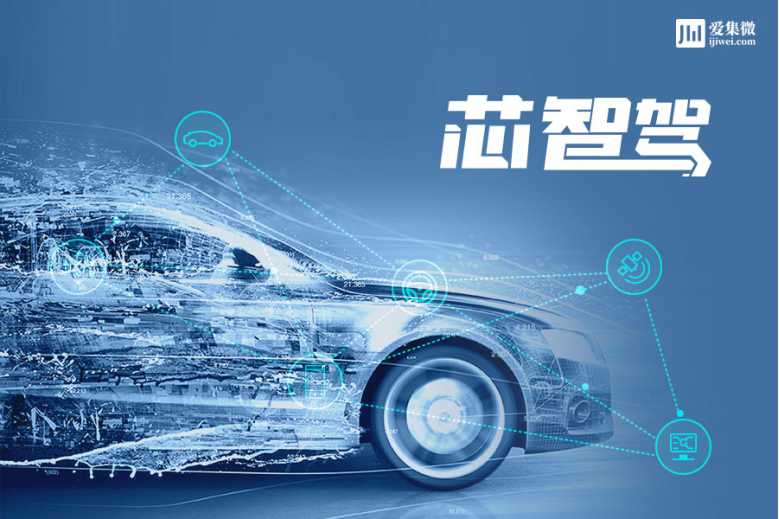
Editing by Li Panpan
More world-famous Tier-1 suppliers like Bosch, Valeo, and Continental, are investing in the Chinese automobile industry, especially the EV sectors funding vehicle-to-everything, Lidar, autonomous driving, smart cockpit, and AI chip fields. The deepening cooperation between international companies and local companies is pushing the rapid development of the Chinese vehicle industry chain.

China’s automobile industry heavily depends on international suppliers. Although China is the world’s largest car producer and consumer, it is weak in core technology. Patent block, such as engines of traditional fuel vehicles owned by international companies, has affected the growth of Chinese car enterprises. For example, most revenues and sales of five Fortune 500 car companies in China, namely SAIC, FAW, Dongfeng Motor, BAIC, and GAC, are generated by their joint venture companies. What’s more, most of the automobile chips in the Chinese market are imported. For automotive-grade MCU products, China has only a 5% self-sufficiency rate.
The current severe cut in global chip production since the pandemic outbreak has significantly affected Chinese automobile companies, resulting in a huge imbalance in the supply chain. According to public documents from China’s State Administration for Market Regulation, at the end of 2020, the price of automotive-grade MCU from NXP and Texas Instruments soared more than 45 times because of the global chip shortage.
To develop a more healthy industry, the Chinese government has been promoting foreign investment as one option by introducing more favorable policies and measures. Global investors are coming to China’s EV industry in various ways in recent years, either setting up their own companies or are investing more and more in the Chinese companies.
World-famous Tier-1 supplier Valeo is a good example. It established its first joint venture in China in 1994. It now has 35 factories in the country producing wiper, reversing radar, air conditioning control panel, air conditioning assembly, motor assembly, automotive lighting system, compressor, clutch, and engine, as well as 12 research centers. China has become the largest single market for Valeo and is its focus of future development, said the company.
German supplier Bosch has invested in China’s local automobile supply chain companies like Hesai Technology, Trunk, Uisee, and Autolink, which has accumulated more than RMB 50 billion ($7.82 billion) over the last ten years. It announced last summer the setup of its Boyuan Capital along with its first RMB-denominated funds “Bosch China Growth Funds I”. It will invest in multiple industries, including automobile and semiconductors. Bosh China President Chen Yudong said that the newly established Boyuan Capital would undoubtedly make Bosh more efficient and flexible to handle its investment in China.
Toyota and Mercedes-Benz invested in Momenta in series C financing. Mercedes-Benz also held Farasis Energy stocks, a China-based lithium-ion pouch battery manufacturer. Volkswagen invested in Gotion.
According to General Motors, Chinese consumers are embracing electrification and advanced self-driving technology faster than anywhere else in the world. The company decided last September to invest $300 million in Momenta, a Chinese self-driving startup, and they would work together to deploy next-generation solutions tailor-made for consumers in China.
Continental and Horizon Robotics, another Chinese AI chip startup, signed a contract to set up a joint venture company to provide solutions of Advanced Driver Assistance Systems and autonomous driving last September for both Chinese and overseas clients. Frank Petznick, head of the Advanced Driver Assistance Systems business unit at Continental, commented, “This approach to innovation is what the market needs. By forming a joint venture, we can leverage a powerful combination of cutting-edge AI technology with our outstanding manufacturing expertise to produce best-in-class and affordable products”,
BMV and Volkswagen are getting more active as investors in China as well. BMW expressed to purchase all shares of Brilliance Auto – a local Chinese state-owned automobile manufacturer to acquire its manufacturing license in China. Volkswagen bought 50% of Anhui Province-based JAC Group’s shares in May 2020.
More exempted and relaxed investment restrictions in recent years on the part of the Chinese government have played important roles in attracting these investments. In 2018, China removed the 50% foreign ownership cap for VIP cars and new energy cars. In 2020, restrictions on the foreign shareholding ratio of commercial vehicles were removed.
Huang Libin, the spokesperson for China’s Ministry of Industry and Information Technology, said that “In 2022, the cap on foreign ownership in passenger car manufacturing will be lifted. Restrictions on a foreign investor establishing more than two joint ventures in China to produce the same vehicle product will also be removed, and foreign ownership caps on passenger car manufacturing companies will all be removed.”
Meanwhile, new energy cars are enjoying surging sales in China. More than 440,000 companies listed in China are related to the EV industry chain, and newly-registered ones numbered more than 50,000 from January to October in 2021. The trend is driving new foreign investors to the Chinese market.
Li Wei, Vice Director of China Automobile Technology and Research Center, said, “Leading international automobile companies like Volkswagen, General Motors, and BMW all announced their electrification plans in China.”
Local Chinese automobile companies are taking a welcome attitude towards more foreign investors. A marketing manager from an automotive power management IC company said, “With more investment from international companies into our local industry chain, we see more opportunities to work with international suppliers, especially those of Tier-1, raising our chances to get into their OEMs. Chinese automobile IC companies have progressed in recent years, and through cooperation, Chinese companies find some of their products and technologies are of the same quality as their international counterparts.”
RELATED
-
BYD plans to establish a sodium-ion battery plant in eastern China’s Xuzhou with an investment of RMB10 billion ($1.4 billion)
11-20 17:51 -
European Commission President von der Leyen will visit China in wake of the EU’s ongoing probe into China’s subsidies on EV industries
11-20 16:59 -
Chinese auto giant Changan Automobile plans to launch eight self-developed battery cells in the future
11-20 16:26
READ MOST

No Data Yet~







